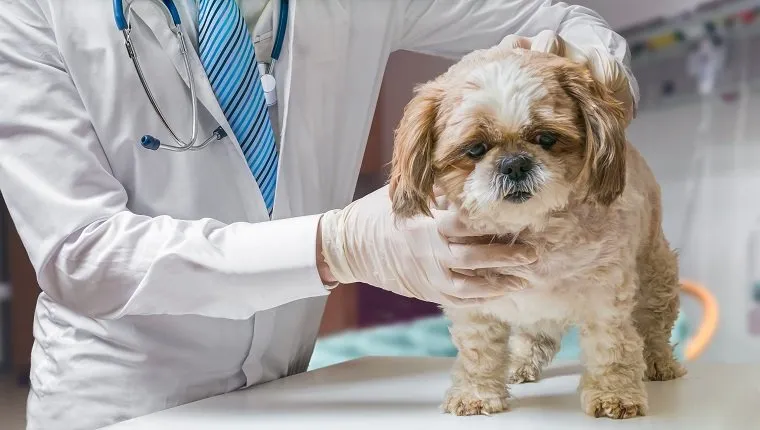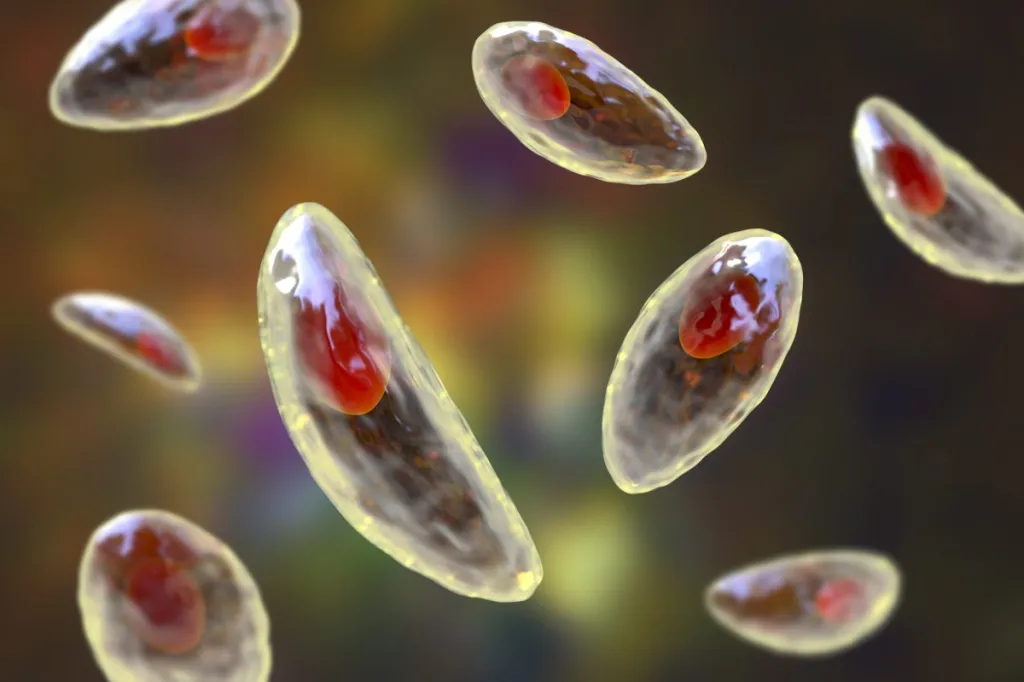Toxoplasmosis in dogs is an infection caused by a parasite known as Toxoplasma ghondii. This parasite usually affects cats and passes to other species through their fecal matter, though cats are not the only source of Toxoplasmosis.
Toxoplasma gondii is often passed through raw meat or unwashed fruits and vegetables. Some dogs with toxoplasmosis don’t show any outward symptoms, while others may experience problems in the nervous system, respiratory system, or vision. This is especially true in dogs who have compromised immune systems.
If you see the signs of toxoplasmosis in your dog, then you must consult your veterinarian for proper treatment. Here’s what you should know about the symptoms, causes, and treatments for toxoplasmosis in dogs.
Symptoms Of Toxoplasmosis In Dogs

Most healthy adult dogs show no symptoms of toxoplasmosis, though some do. Young dogs whose immune systems aren’t fully developed and dogs whose immune systems are compromised are at greater risk of becoming ill due to the infection.
The symptoms, when they do appear, are similar to those of distemper or rabies and may be confused for those conditions.
If you see the following symptoms in your dog, then get to your vet for a proper diagnosis and treatment:
- Vomiting
- Diarrhea
- Abdominal pain
- Abdominal swelling
- Jaundice
- Tonsillitis
- Arrhythmia
- Inflamed retinas, irises, or corneas
- Rapid blinking
- Light sensitivity
- Seizures
- Tremors
- Depression
- Lethargy
- Loss of coordination
- Loss of muscle control
- Head tilting
- Weakness
- Paralysis (may be partial or complete)
- Shortness of breath
- Coughing
- Increased breathing rate
- Pneumonia
- Fever
- Weight loss
- Loss of appetite
- Neurological problems
Causes Of Toxoplasmosis In Dogs

Toxoplasmosis in dogs is often caused by ingestion of cat feces. Some dogs will eat cat feces directly, but others can be exposed when cat feces comes into contact with food, such as raw vegetables in a garden, for example.
Washing vegetables thoroughly before feeding them to your dog can help prevent infection.
Eating raw meat and dead animals, such as rodents or birds, can also cause the parasitic infection, as well as drinking unpasteurized goat milk or contaminated water. If you choose to feed your dog raw meat, then you must learn how to properly prepare it to reduce the risk of contamination and infection.
Pregnant dogs infected by the parasite will pass it on to unborn puppies.
Treatments For Toxoplasmosis In Dogs

Treatment for dogs showing severe symptoms of toxoplasmosis may begin with hospitalization and intravenous fluids if there are signs of dehydration. Antibiotics may be given to help stop the infection from progressing and causing further symptoms.
Generally, vets prescribe medication to fight the parasite, including sulfadiazine, pyrimethamine, and clindamycin. While these drugs do help, an infected dog’s immune system must be supported to fully eliminate the infection. Contact with other animals during the recovery process should be limited.
Prevention is often a more effective way of dealing with toxoplasmosis. Dogs should not have access to any cat’s litter box, and outside sandboxes or other areas where outdoor cats may defecate should be off limits.
Homegrown vegetables and fruits should be washed before serving, and raw meat should be frozen for at least two days before serving.
Most dogs recover well from toxoplasmosis, though in the case of fetal toxoplasmosis where a pregnant mother passes the infection to their young, the puppies are likely to be stillborn, die shortly after birth, or end up with severe birth defects.
Do you take steps to keep your dog safe from toxoplasmosis and other infections? Then let us know in the comments below!









